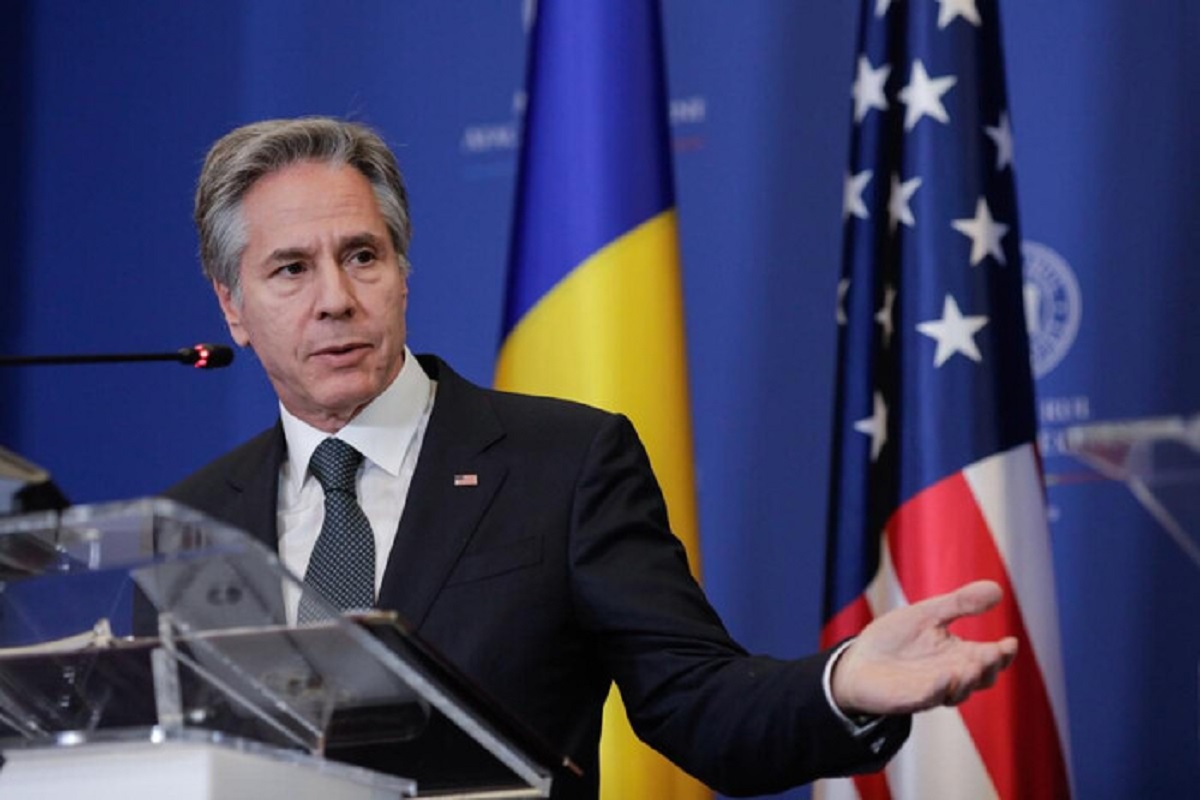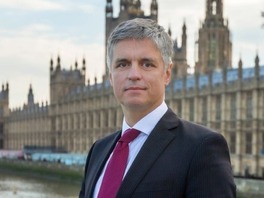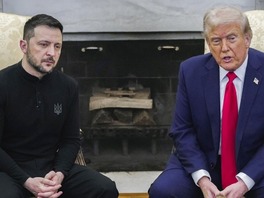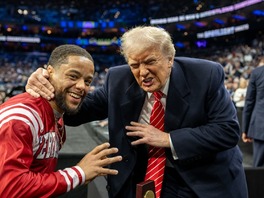On Sunday, April 28, the World Economic Forum commenced in Riyadh, Saudi Arabia's capital. The event, despite limited discussion in Ukraine, remains pivotal with its assembly of hundreds of political leaders and economic experts from over 90 countries and international bodies. U.S. Secretary of State Antony Blinken also attended, addressing the ongoing Russia-Ukraine conflict and Ukraine in particular. Apostrophe evaluated the significance of his remarks on Ukraine and the broader implications of the forum.
Beijing is perpetuating a war
The central focus of the World Economic Forum in Riyadh, themed Global Collaboration, Growth and Energy for Development, centered on resolving Middle Eastern crises, specifically aiming for peace in Israel. U.S. Secretary of State Antony Blinken attended the forum with a primary agenda to address the Israel-Palestine conflict. Nevertheless, his discussions at the forum extended beyond this scope, also encompassing the ongoing war between Ukraine and Russia.
The central focus of the World Economic Forum in Riyadh, themed "Global Cooperation, Growth, and Power for Development," centered on resolving Middle Eastern crises, specifically aiming for peace in Israel. U.S. Secretary of State Antony Blinken attended the forum with a primary agenda to address the Israel-Palestine conflict. Nevertheless, his discussions at the forum extended beyond this scope, also encompassing the ongoing war between Ukraine and Russia.
‘If you look at what Russia’s done over the last year in terms of its production of munitions, missiles, tanks, and armored vehicles, it’s produced them at a faster pace than at any time in its modern history, including during the Cold War as the Soviet Union. How has it been able to do that? Because it’s getting massive inputs of machine tools, microelectronics, optics, mostly coming from China. Seventy percent of the machine tools, 90 percent of the microelectronics are coming from China. Now, these are dual-use items, but we know very clearly where so many of them are going. It is enabling Russia to continue the aggression against Ukraine, so it’s perpetuating a war that China says it would like to see come to an end, as all of us would,’ Blinken said.
Blinken emphasized that from the onset of Russia's aggression against Ukraine, the United States engaged with China, urging it to refrain from supplying Russia with weaponry that could exacerbate the conflict.
‘And I think it’s fair to say that China has not directly supplied Russia with weapons, with missiles, with munitions. Iran is doing it; North Korea is doing it. However, what China is doing is providing invaluable support to Russia’s defense industrial base that’s helping Russia deal with the mass oppression that’s been exerted through sanctions, through export controls, and other measures,’ Secretary General said.
Blinken also stated that China's support enables Russia to rebuild its defense industrial base, which could be used against European nations following the conclusion of the conflict in Ukraine.
Mykhailo Pashkov, head of security programs at the Razumkov Center, commented to Apostrophe that Blinken's emotionally charged and stern speech was spurred by his recent meetings with Chinese officials in Beijing. He noted, "This reflects the ongoing clash between democratic nations and those with authoritarian and totalitarian regimes."
Plan for Ukraine
Speaking about the war, Blinken noted that Putin has not achieved his goal.
‘The designs that Vladimir Putin had on Ukraine to begin with, to erase it from the map, to subsume it into Russia so that it no longer existed – that’s failed,’ he said.
Blinken further stated that the U.S. has developed a strategy aimed at ensuring Ukraine's long-term success as "a strong country: militarily, economically, democratically." While he did not disclose specifics of the plan, his remarks prompt speculation about the nature of the U.S. strategy and whether it might simply be Democratic electoral rhetoric ahead of the presidential elections.
‘It seems to me that Blinken is far from merely using election rhetoric. He is straightforward in his remarks. Clearly, the White House is actively developing a plan for Ukraine, something the Republicans have pushed for during discussions on aid allocation,’the Director of the Center for Middle Eastern Studies Ihor Semyvolos tell to Apostrophe.
‘It's important to recognize that this is not a strategy for rapid victory but rather a comprehensive plan focused on recovery, economic development, public administration reform, and the advancement of democracy in Ukraine. Blinken's comments in Saudi Arabia were strategic. To the Middle Eastern countries Ukraine might be a viable investment opportunity, thus inviting potential interest and collaboration,’ he explaines.
‘By referring to the plan for Ukraine, Blinken was alluding to the aid the USA has allocated to our country,’ Pashkov explaines. ‘I believe he was also indirectly referencing NATO Secretary General Stoltenberg's visit to Kyiv, during which he announced the creation of a support fund for Ukraine.’
‘Bilateral security agreements are actively being forged, including one currently in preparation with the United States. Additionally, Switzerland has announced plans to host a Peace Summit. These initiatives are elements of the U.S. plan for Ukraine, and Blinken, at the Forum, hinted to the attending nations about the possibility of joining this concerted effort,’the expert continues.
‘Blinken could not afford to miss the opportunity to address the war in Ukraine on such a prominent stage,’ says Volodymyr Volya, an international policy expert quoted by Apostrophe. ‘I believe the White House has a clear vision for further actions concerning Ukraine, which forms part of a strategy demanded by the Republicans from the Democrats. In due course, the White House is expected to disclose this strategy publicly.’
Experts believe that the plan for Ukraine will only be effective after the war concludes. Notably, during his remarks in Riyadh, Blinken also referenced the end of the war and hinted at negotiations with Putin.
‘The end of the Ukraine war depends mostly on Vladimir Putin and what he decides. So I hope that Mr. Putin gets the message and demonstrates a willingness to genuinely negotiate consistent with the basic principles that are at the heart of the international community and the UN Charter: sovereignty, territorial integrity, independence. If those are appropriately affirmed, there should be a resolution,’ said the US Secretary of State in a conversation with the president of the World Economic Forum, Borge Brende.
So, where is Ukraine?
The absence of Ukrainian representatives at the Global Economic Forum in Saudi Arabia is unexpected. Official Ukrainian sources have not provided any information on this matter.
‘Strangely, Ukraine's elitе has prioritized only its western relationships. While officials, legislators, business figures, and many funded by grants heavily populate events like GEF in Davos, their presence is notably absent in Saudi Arabia’s GEF. This oversight is puzzling given the strategic significance of the Middle East, as well as other regions such as Africa and China,’Volodymyr Volya expresses surprise.
The expert believes that if we aim to engage Global South countries, we must actively pursue opportunities in these regions as well.
‘Perhaps some of our representatives are in Riyadh, but they are clearly not the leading figures from the ministries or the top officials of the Ministry of Foreign Affairs; otherwise, this would be well-known,’ Volya concludes.






